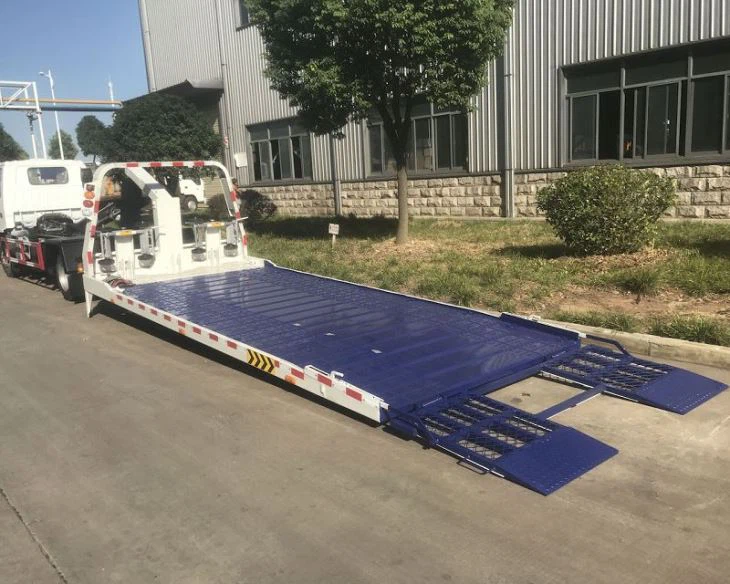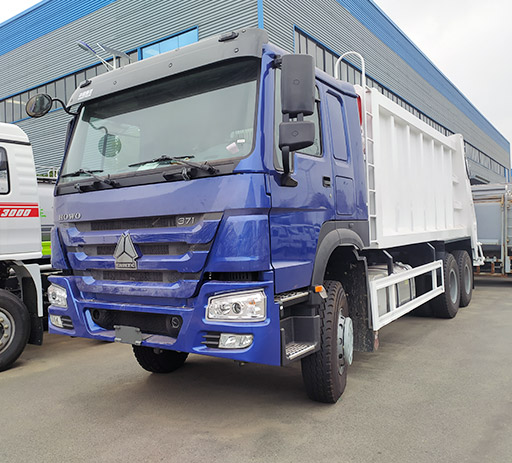McNeilus Trash Truck: A Comprehensive Guide

Introduction
The McNeilus trash truck has become a vital component of waste management systems across North America. Known for its reliability, durability, and innovation, this garbage truck is favored by municipalities and private waste management companies alike. This article delves into the various aspects of McNeilus trash trucks, covering their types, features, operational benefits, maintenance tips, and what makes them stand out in the competitive landscape of waste management vehicles.
1. Overview of McNeilus Manufacturing
Founded in 1970, McNeilus is a part of the Oshkosh Corporation and is recognized as a leader in the refuse truck industry. Known for innovation and quality, McNeilus specializes in the design and manufacturing of various refuse collection vehicles. Their product line not only includes trash trucks but also features recycling and front-loading vehicles that align with modern waste management needs.
1.1 History and Evolution
McNeilus started as a small manufacturing company and has evolved significantly over the decades. Initially focusing on concrete mixer trucks, the company gradually expanded into refuse trucks, responding to the increasing demand for more effective waste collection systems.
1.2 McNeilus’s Commitment to Sustainability
A significant ethos of McNeilus is its commitment to environmental protection. The company invests in research and development to create trucks that are not only efficient but also environmentally friendly, utilizing alternative fuel sources and technologies.

2. Types of McNeilus Trash Trucks
McNeilus offers a variety of models tailored to different waste collection needs. Here are some of the main types:
2.1 Rear Loader Trucks
Rear loader trucks are designed for residential and commercial waste collection. These trucks are equipped with a powerful loading system that allows loaders to collect trash bins from behind.
Features:
- Capacity: Ranges from 10 to 30 cubic yards
- Collection Efficiency: Can handle various container sizes
- Loading Mechanism: Automated options available for enhanced efficiency
2.2 Front Loader Trucks
Front loader trucks are designed for commercial and industrial waste collection, particularly for large containers and dumpsters.
Features:
- Capacity: Typically ranges from 20 to 40 cubic yards
- Versatile Use: Ideal for frequent stops and pick-ups
- Robust Design: Built to withstand the stress of heavy-duty use
2.3 Side Loader Trucks
Side loader trucks provide a specific advantage when navigating tight urban environments, allowing for both automated and manual operations from the side.
Features:
- Compact Footprint: Ideal for narrow streets and high-density areas
- Flexible Loading: Can switch between automated and manual loading
- Increased Safety: Reduces the need for the driver to exit the vehicle
3. Key Features of McNeilus Trash Trucks
McNeilus trash trucks are known for incorporating advanced technology and user-friendly features. Here are some of the standout features:
3.1 Advanced Hydraulic Systems
The hydraulic systems in McNeilus trucks enable smoother and more efficient operations, allowing drivers to load and unload trash quickly.
3.2 Ergonomic Design
McNeilus incorporates ergonomics in their truck designs, which benefits both drivers and crew members. Features like strategically placed controls and comfortable seating improve the overall user experience.
3.3 Smart Truck Technology
McNeilus trucks are equipped with technology that tracks performance metrics, enabling fleet managers to optimize routes and improve efficiency in waste collection.
3.4 Customizable Configurations
The company allows customers to create custom configurations based on specific municipal needs, ensuring that each truck meets the necessary waste management requirements.
4. Benefits of Using McNeilus Trash Trucks
Investing in McNeilus trash trucks offers numerous benefits for both waste management companies and municipalities.
4.1 Cost-Effectiveness

McNeilus trucks are designed to minimize operational costs through their efficient systems and durability, allowing for longer service intervals and reducing downtime.
4.2 Enhanced Safety Features
Safety is paramount in waste collection operations. McNeilus trucks come equipped with features such as backup cameras and alert systems that reduce accidents and injuries.
4.3 High Resale Value
Due to their reputation for quality and durability, McNeilus trucks retain a strong resale value, making them a wise investment for fleet managers.
5. Maintenance Tips for McNeilus Trash Trucks
Regular maintenance is crucial for the long-term performance of McNeilus trash trucks. Here are some practical maintenance tips:
5.1 Regular Inspections
Conduct thorough inspections on a regular basis, focusing on tires, brakes, hydraulic systems, and the body of the truck. Address any issues immediately to prevent more significant problems down the line.
5.2 Scheduled Oil Changes
Follow the manufacturer’s guidelines for oil changes to ensure that your truck runs smoothly and avoids unnecessary wear on engine components.
5.3 Cleaning and Sanitation
Regularly clean the truck, especially areas that collect waste residue. This helps maintain hygiene and prevents unpleasant odors.
5.4 Training for Operators

Provide comprehensive training for operators to ensure they are familiar with the handling and maintenance of McNeilus trucks, which can greatly extend vehicle life.
6. Case Studies: McNeilus Trash Trucks in Action
Several municipalities have successfully integrated McNeilus trash trucks into their waste management systems. Below are two case studies:
6.1 Case Study: City of Springfield
The City of Springfield implemented a fleet of rear loader McNeilus trucks to handle residential waste. Within the first year, they reported a 25% increase in operational efficiency, attributed to the advanced hydraulic systems and ergonomic design.
6.2 Case Study: Town of Woodside
Woodside incorporated front loader trucks for commercial waste collection. They noted a significant reduction in labor costs by 15%, thanks to the automated loading technology that streamlined operations during peak collection times.
7. Environmental Impact of McNeilus Trucks
As waste management practices evolve, the environmental impact of trash collection vehicles is becoming increasingly important.
7.1 Commitment to Reducing Emissions
McNeilus focuses on reducing emissions through designs that emphasize fuel efficiency and the development of alternative fuel options, such as CNG and electric vehicles.
7.2 Recycling and Waste Diversion
Many McNeilus trucks are equipped to facilitate recycling efforts. By optimizing routes and collections, these trucks help municipalities increase their recycling rates and divert waste from landfills.
8. Frequently Asked Questions (FAQ)
8.1 What is the average lifespan of a McNeilus trash truck?
The average lifespan of a McNeilus trash truck can vary, but with regular maintenance, many trucks are known to last over a decade.
8.2 Can McNeilus trucks be used for recycling?
Yes, McNeilus offers specialized trucks designed for recycling, and many of their models can be adapted to handle recyclable materials efficiently.
8.3 What financing options are available for purchasing a McNeilus trash truck?
McNeilus provides various financing options, including leasing, loans, and trade-in programs to assist customers in acquiring their vehicles.
8.4 Are McNeilus trash trucks suitable for urban environments?
Yes, several models are specifically designed for urban use, including side loaders and compact configurations that can navigate narrow streets effectively.
8.5 How can I find a dealer for McNeilus trucks?
Customers can visit the McNeilus website to use their dealer locator tool, which provides information on authorized dealers in various regions.
8.6 What maintenance support does McNeilus offer?
McNeilus provides comprehensive maintenance support through training programs, technical support, and readily available replacement parts for all their models.
